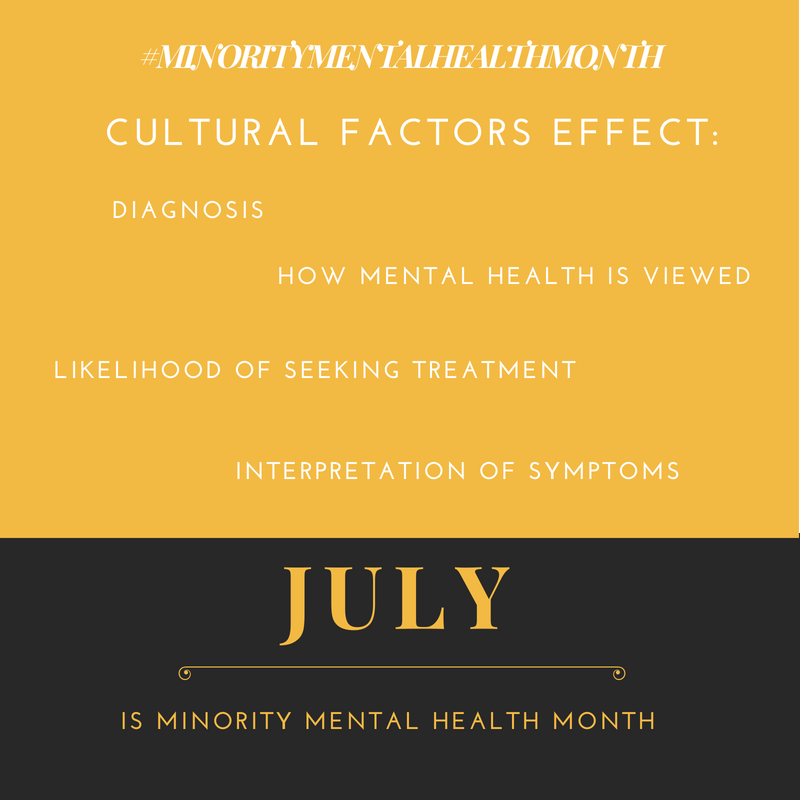
Mental Health Among Minorities
Although mental health affects all ethnicities and groups equally, some groups are more prone to developing mental health disorders and less likely to get treatment. Factors like racism, cultural factors, socioeconomic factors and lack of access to quality healthcare work against maintaining an individual’s mental health. This can affect whether or not an individual stays in treatment or if they receive treatment at all. While this article will look at issues regarding racial minorities and mental health care, discrepancies also exist among other minority groups, like the LGBTQ community.
Mental Health and Cultural Factors
Cultural factors play a role in the diagnosis and interpretation of symptoms, as some cultures treat mental health issues differently. In many communities, people who suffer from certain mental disorders are incorporated into their surrounding communities. Other communities, on the other hand, take a different outlook and ignore mental health issues completely, leading to many not reaching out for treatment.
Studies have shown that many minorities face misdiagnosis at the hands of healthcare professionals who lack training in cultural contexts. This results in a population of people who reach out for healthcare and are misdiagnosed or receive improper treatment, creating a lack of trust in healthcare officials in these communities. For example, studies have shown that African Americans are more likely to be misdiagnosed with schizophrenia, because of how their symptoms are misinterpreted by medical professionals.
It is important to improve awareness of the discrepancy in the healthcare quality provided to minorities, so that the medical community can also make changes and people can receive proper treatment. Studies have also shown that the racism that minorities receive can affect both physical and mental health outcomes. People in minority communities also report symptoms of mental disorders differently which medical professionals, who are not familiar with cultural differences in symptom reporting, might not diagnose as a mental health disorder. If you are a minority harboring these doubts towards professionals, it is still in your interest to reach out to find and receive the quality healthcare that you deserve.
Due to mistrust in public health and healthcare diagnoses, minorities are less likely to seek assistance for mental health. Some communities might not know what symptoms to look for when it comes to mental health disorders or might think that they are weak for receiving a disorder. This shows that it is also important for us to improve education of mental health disorders, so that people know when they need to receive help.
What can we do?
In order to create better access mental health care for all individuals equally, we should speak out to spread awareness and support minorities who might be suffering, but feel as though they have nowhere to look. It is extremely important for these people to know that there are others out there who want to help them and understand what they have gone through. You can also reach out to legislators in your community to improve the access of healthcare and advocate for more representations of minorities at mental health organizations.
No matter what race or group you identify with, if you believe you are suffering from a mental health condition, do not be afraid to reach out for help. There are providers of mental healthcare out there who can cater towards your needs and begin your steps towards better mental health. There are still many places you can look to find and receive proper health care. You can visit Lifelineconnections.org or call 360.397.8246 for more information.
